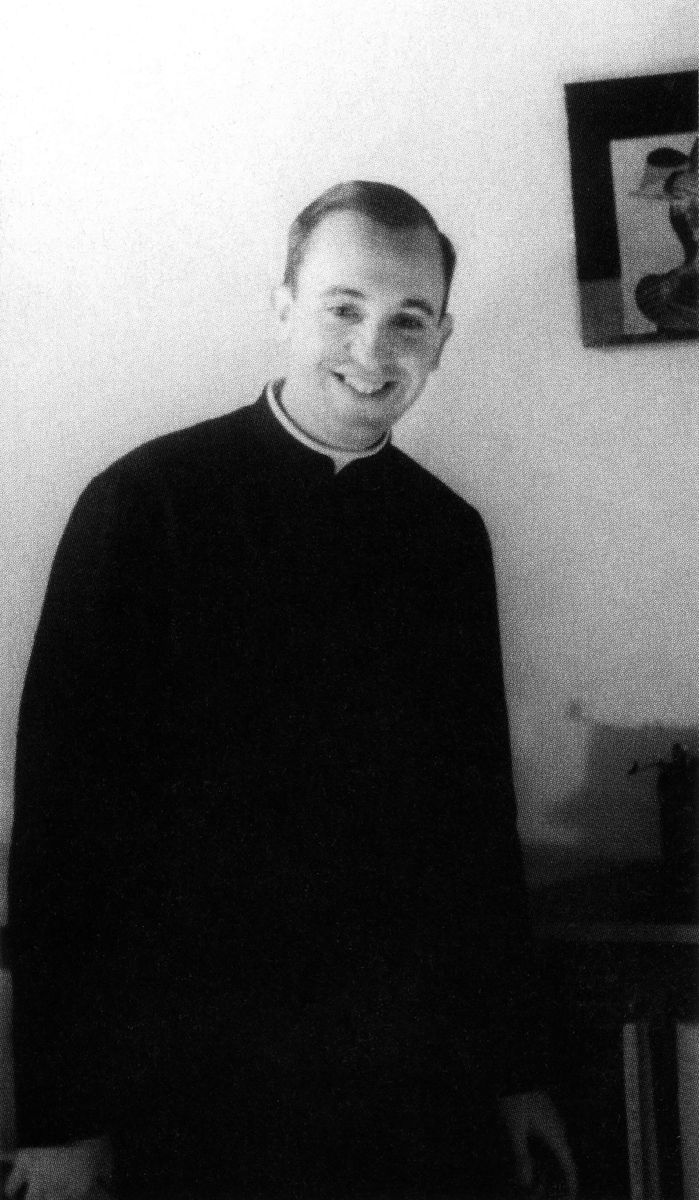Before the white robes, the Vatican balcony waves, and the global headlines, Jorge Mario Bergoglio was just "Father Jorge," a serious young Jesuit priest walking the streets of San Miguel, Argentina.
And Ana Maria Belmonte, now 79, remembers him perfectly. Back in the 1970s, life looked a lot simpler, and so did Father Jorge. As Ana Maria shared with People, she often saw him working with the Jesuits at Colegio Máximo, a religious school in San Miguel that, fun fact, was then exclusively for women.
"The Jesuit fathers assisted the religious schools which at that time were only for women, and so they assisted us," Belmonte recalls. "I had a very close relationship with the world of the Jesuit priests."
It wasn't all serious theological business, though. Ana Maria laughs, remembering her mischievous little son, Juan Pablo, who would stealthily creep up during Mass to blow out the altar candles as if he were making a birthday wish. "Sometimes also during Father Jorge Bergoglio's mass — the pope's mass!" she says, still amused at the memory.
A Future No One Saw Coming
If you're wondering whether the young priest already had that "papal sparkle," the answer is not. "Who would have thought he would become pope? At that moment, no one imagined it," Belmonte says, still sounding amazed.
Father Jorge was, by all accounts, the opposite of flashy. Serious. Reserved. Humble to the point of stubbornness. "He would never accept being driven in a car, nor being waited on," Belmonte shares. "If he used something — a cup, a plate, whatever — he would wash it himself."
Basically, imagine a man who could lead the world's 1.3 billion Catholics but couldn't stand the idea of someone else cleaning up after him. It tracks. He wasn't climbing ladders; he was too busy trying to serve quietly in the background, staying as low-key as possible. That's just who he was.
The "Grace of State" Changed Him
When Jorge Mario Bergoglio shocked the world in 2013 by stepping out onto the Vatican balcony as Pope Francis, Ana Maria noticed something had shifted, in the best possible way. "His character changed," she says. "He became much more affable, smiling, pleasant."
She calls it the "grace of state," the idea that the heavy responsibility of leadership brought out an even warmer, more accessible version of the man she knew.
Francis became known as the "People's Pope," and Ana Maria wasn't surprised to see his humility shine. He had been practicing it his whole life. "He was truly close to the people," she says. He was a brilliant and capable person."
The Final Goodbye
Pope Francis died on April 21 at the age of 88. Due to a cerebral stroke, complicated by other serious health conditions, including pneumonia and diabetes, according to the Vatican.
Thousands gathered in St. Peter's Square on April 26 to say goodbye to the man who had lived, served humbly, and loved greatly. "I never imagined he would become the pope," Belmonte admits. "But now I think about all those merits. The cardinals knew who he was."
It turns out greatness isn't always loud. Sometimes, it tiptoes quietly to the altar, just like a little boy blowing out the candles, not realizing the light he's touching would someday set the world aglow.
,type=downsize)
